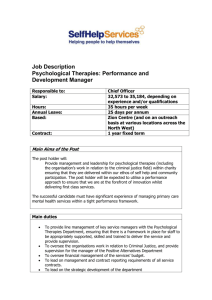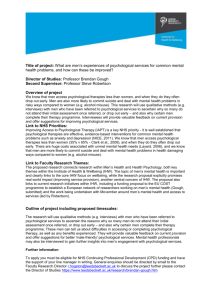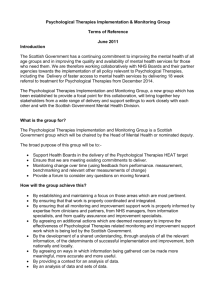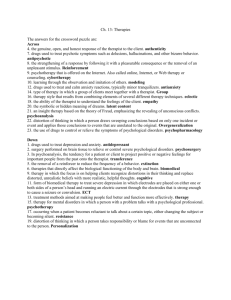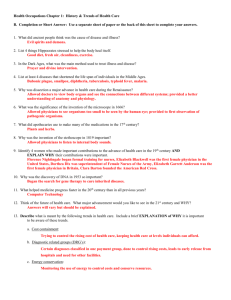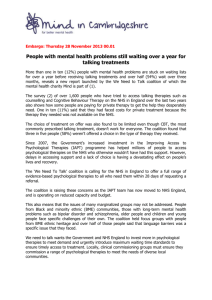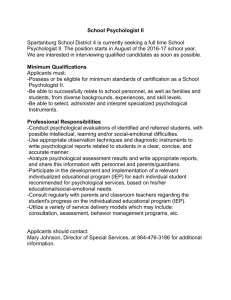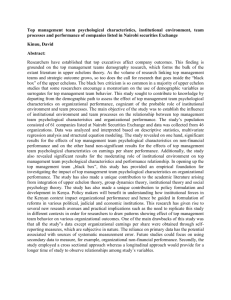joint statement
advertisement
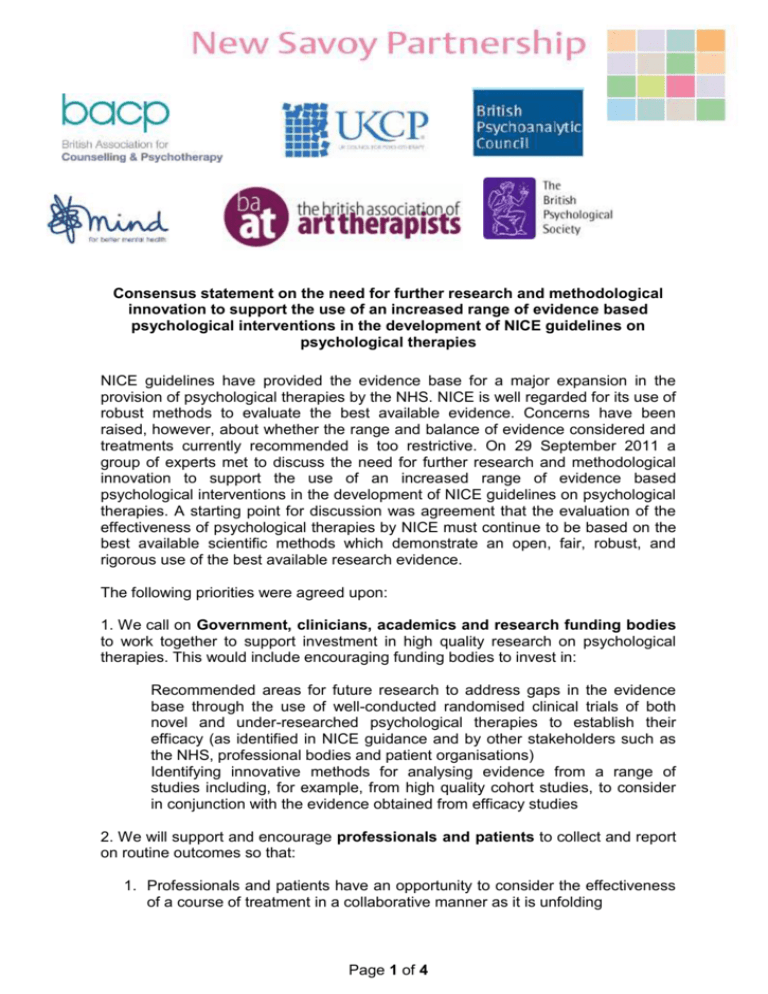
Consensus statement on the need for further research and methodological innovation to support the use of an increased range of evidence based psychological interventions in the development of NICE guidelines on psychological therapies NICE guidelines have provided the evidence base for a major expansion in the provision of psychological therapies by the NHS. NICE is well regarded for its use of robust methods to evaluate the best available evidence. Concerns have been raised, however, about whether the range and balance of evidence considered and treatments currently recommended is too restrictive. On 29 September 2011 a group of experts met to discuss the need for further research and methodological innovation to support the use of an increased range of evidence based psychological interventions in the development of NICE guidelines on psychological therapies. A starting point for discussion was agreement that the evaluation of the effectiveness of psychological therapies by NICE must continue to be based on the best available scientific methods which demonstrate an open, fair, robust, and rigorous use of the best available research evidence. The following priorities were agreed upon: 1. We call on Government, clinicians, academics and research funding bodies to work together to support investment in high quality research on psychological therapies. This would include encouraging funding bodies to invest in: Recommended areas for future research to address gaps in the evidence base through the use of well-conducted randomised clinical trials of both novel and under-researched psychological therapies to establish their efficacy (as identified in NICE guidance and by other stakeholders such as the NHS, professional bodies and patient organisations) Identifying innovative methods for analysing evidence from a range of studies including, for example, from high quality cohort studies, to consider in conjunction with the evidence obtained from efficacy studies 2. We will support and encourage professionals and patients to collect and report on routine outcomes so that: 1. Professionals and patients have an opportunity to consider the effectiveness of a course of treatment in a collaborative manner as it is unfolding Page 1 of 4 2. Patients can reflect on their own outcomes and help enable future patients to access therapies that have been most useful 3. Professionals can ensure improved value for money for NHS services and help enable future patients to access therapies that have been most useful 3. We urge NICE to make best use of the new evidence that will emerge from this work to support: Patients in making informed choices on evidence based psychological therapies. Clinical commissioning groups in making intelligent decisions on commissioning an appropriate range of evidence based psychological therapies for their patients Providers in making well informed judgements on what evidence based psychological therapies to offer Our intention is to build a wider consensus amongst academics, clinicians, professional bodies and mental health charities and others, and to use the agreed priorities and principles above as the starting point for undertaking work collaboratively to achieve further progress. Signed: Jeremy Clarke Chair, New Savoy Partnership Nancy Cartwright FBA Professor of Philosophy LSE Sophie Corlett Director External Relations Mind Angela Coulter Director of Global Initiatives The Foundation for Informed Medical Decision Making Page 2 of 4 Consensus statement on the need for further research and methodological innovation to support the use of an increased range of evidence based psychological interventions in the development of NICE guidelines on psychological therapies Michael King UCL Professor Peter Stratton Chair, UKCP Research Faculty Page 3 of 4 Consensus statement on the need for further research and methodological innovation to support the use of an increased range of evidence based psychological interventions in the development of NICE guidelines on psychological therapies I agree with and support the consensus statement presented at Psychological Therapies in the NHS 2011 on Thursday 24th November 2011 at Savoy Place, London. Name Job Title & Organisation Signed Comments Please hand in your signed form to the conference registration desk. Thank you. Page 4 of 4
